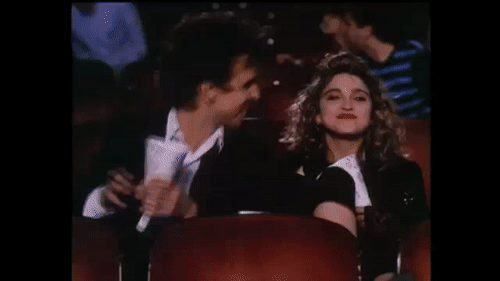“Masterpiece” is a song by Madonna that was featured on the soundtrack of the 2011 film W.E., which she directed. The song also appears on her twelfth studio album, MDNA, released in 2012. “Masterpiece” is a standout track due to its emotional depth and the simplicity of its arrangement, which contrasts with much of the more upbeat, electronic music on MDNA.
Key Aspects of “Masterpiece”:
- Songwriting and Production: “Masterpiece” was written by Madonna, Julie Frost, and Jimmy Harry, with production handled by Madonna and William Orbit, who also collaborated with her on the Ray of Light album. The song features a gentle acoustic guitar melody, subtle strings, and Madonna’s vocals, which are delivered with a sense of vulnerability and introspection.
- Lyrics and Theme: The lyrics of “Masterpiece” compare a person to a beautiful work of art, something exquisite but ultimately unattainable. The song speaks to the pain of loving someone who is emotionally distant or out of reach, with lines like “If you were the Mona Lisa, you’d be hanging in the Louvre” and “But you’re so beautiful, you don’t even know.”
- Connection to W.E.: W.E. is a historical romantic drama that tells the story of the relationship between Wallis Simpson and King Edward VIII, juxtaposed with a modern-day love story. “Masterpiece” reflects the film’s themes of love, longing, and the complexities of relationships. The song plays during the end credits of the film, capturing the bittersweet essence of the narrative.
- Awards and Recognition: “Masterpiece” received critical acclaim and won the Golden Globe Award for Best Original Song in 2012. The song’s win was notable because it marked Madonna’s return to the Golden Globes after having previously won for “You Must Love Me” from Evita in 1997.
- Performance and Legacy: Although “Masterpiece” was not released as a single, it became a favorite among fans and was included in the setlist for Madonna’s MDNA Tour in 2012. The song is appreciated for its lyrical depth and the way it showcases Madonna’s ability to convey emotion through her music.
“Masterpiece” is often highlighted as one of Madonna’s more reflective and mature songs, demonstrating her versatility as an artist.
Abandoned copyrights, sometimes referred to as “orphan works,” are works whose copyright holders are either unknown or cannot be located. This situation can create challenges for users who want to access or use these works legally, as traditional copyright laws generally require permission from the copyright owner.
Key Aspects of Abandoned Copyrights:
- Definition and Context: An abandoned copyright refers to a situation where the original copyright holder has effectively “abandoned” their rights by failing to assert them, renew them (if applicable), or maintain contact information. This can occur for various reasons, such as the death of the copyright holder or changes in ownership that are not properly documented.
- Orphan Works: Orphan works are a subset of abandoned copyrights where the copyright holder is unknown or cannot be located. These works are often important cultural, historical, or educational resources that cannot be used or digitized without risking copyright infringement.
- Legal Challenges: Using abandoned copyrights or orphan works can be legally complex. While the work may be considered abandoned, the law still recognizes the original copyright, and there may be legal risks associated with using the work without proper authorization. This can include legal action from unknown copyright holders if they are later discovered.
- Legislation and Solutions: Various countries have attempted to address the issue of orphan works through legislation or policy changes. For example:
- United States: The Orphan Works Act was proposed to provide a legal framework for using orphan works, but comprehensive legislation has not been enacted. Some specific provisions, like those for libraries and archives, offer limited relief.
- European Union: The EU has adopted directives to help manage orphan works, especially for cultural institutions and digitization projects, allowing more freedom to use such works under certain conditions.
- Other Countries: Different countries have their own approaches, often involving registry systems, copyright searches, and specific legal exceptions.
- Practical Steps: If you are dealing with potentially abandoned copyrights or orphan works, you can take several practical steps:
- Conduct a Thorough Search: Make diligent efforts to locate the copyright holder or their heirs. This may involve searching copyright registries, contacting publishers, or using professional services.
- Consult Legal Advice: Seek legal counsel to navigate the complexities of copyright law and determine the best course of action for using or digitizing the work.
- Use Licensing Services: Some organizations provide services to manage orphan works and facilitate licensing arrangements, especially for cultural and educational purposes.
Understanding and navigating the legal landscape surrounding abandoned copyrights and orphan works can be complex, but it’s crucial for ensuring that creative and cultural works are used responsibly and legally. If you have specific questions or scenarios in mind, feel free to share more details!

